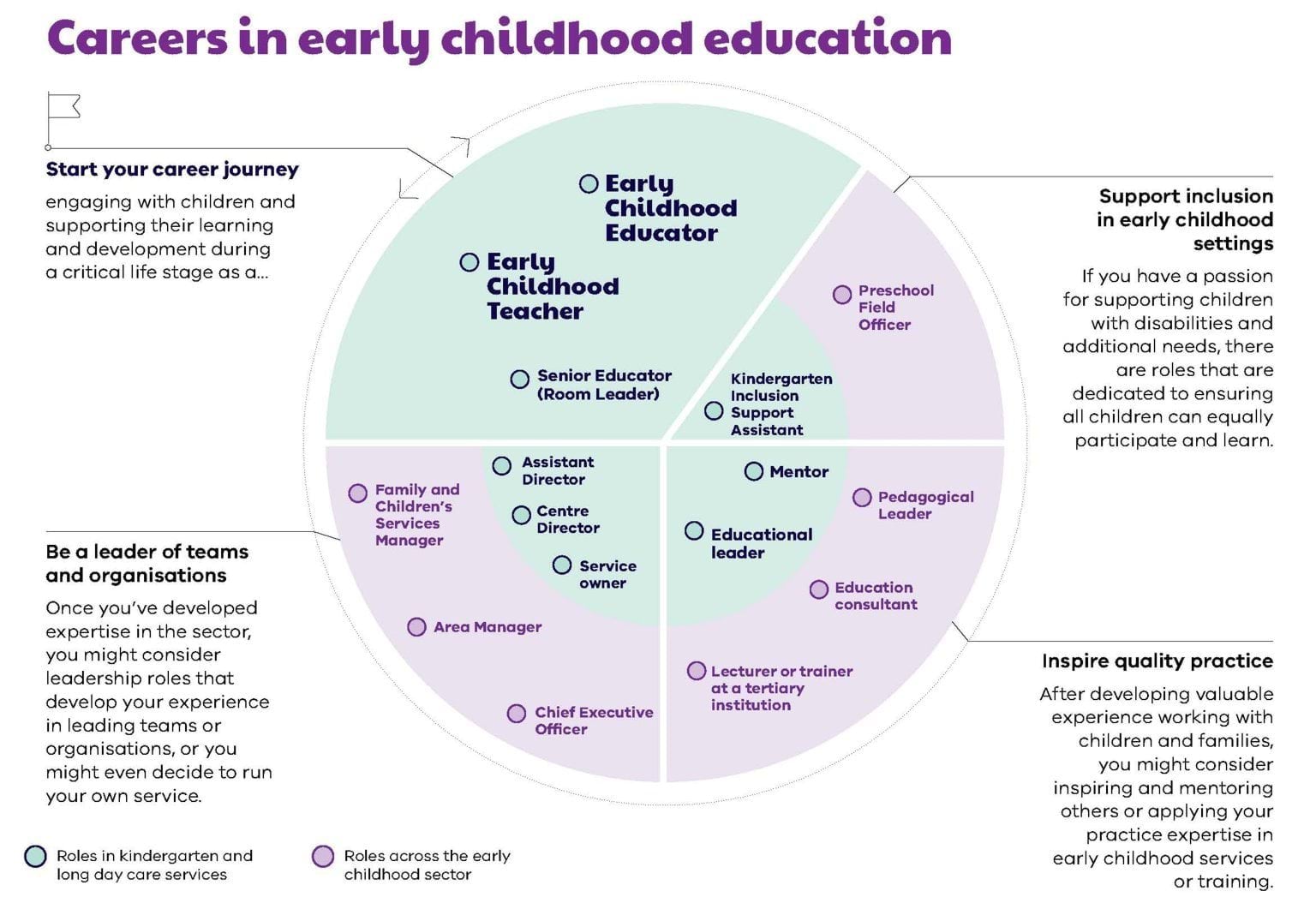What roles are available in early childhood?
The early childhood workforce has a strong culture of professional development, and there are opportunities to upskill, specialise, or step into leadership roles over time.
There are 2 main roles students can start their career in. They can start as an:
Early childhood teacher
Early childhood teachers have expertise in children’s learning and development, and use this knowledge to design and lead engaging play-based kindergarten programs for children aged 3 to 5.
Teachers shape programs that encourage learning and growth, observe and document children’s progress, support and mentor other staff, and build relationships with families and other professionals to support children.
Students can start their career as an early childhood teacher by completing a bachelor degree at university.
Early childhood educator
Early childhood educators prepare and deliver play-based learning activities for children from birth to 5.
Educators work with early childhood teachers to deliver kindergarten programs, observe and record children’s learning and development, and support relationship building with families.
Students can start their career as an educator by completing a vocational qualification at a Registered Training Organisation (e.g. TAFE). There are options to start work while they complete their training.
Both early childhood teachers and educators play a critical role in supporting the social, emotional, physical and cognitive development and wellbeing of young children.
Virtual job experience
Encourage students to complete a virtual work experience module to learn more about working as an early childhood teacher or educator.
Where do early childhood teachers and educators work?
Early childhood teachers and educators work in a variety of settings from small sessional kindergartens in a local community, to large organisations operating over 100 services nation-wide. The 2 main settings teachers and educators work in are:
Sessional kindergartens: A service that operates a kindergarten program for 3 to 5-year-olds on specific days and times.
Long day care centres: A service that offers full days of education and care for children from birth to 5, with an integrated teacher-led kindergarten program for 3 to 5-year-olds.
As professionals develop their knowledge, skills and experience, they may decide to upskill from a role as an educator to a teacher by undertaking further study.
They might also look for opportunities across the early childhood sector, for instance, in broader support or leadership roles, in larger organisations or local government, or at tertiary institutions training the future workforce.
Undertaking work experience in Years 9 or 10 at either of these settings is a great way for students to learn more about early childhood education careers.
Consider reaching out to local early childhood services or training providers to organise opportunities for students to hear directly from early childhood professionals, current students or alumni.
What does career progression look like?
The diversity of roles in the sector allows people to continue learning and developing skills in areas that interest them most. Early childhood teachers and educators can also move into a range of leadership roles in small or large organisations, local government or tertiary institutions.
This diagram provides a snapshot of the range of roles available in a career in early childhood education.
Early childhood education is more than a job, it’s a career. Early childhood careers have great diversity of experiences and endpoints - including pedagogical, research, and organisational leadership - and fantastic flexibility.
Updated
